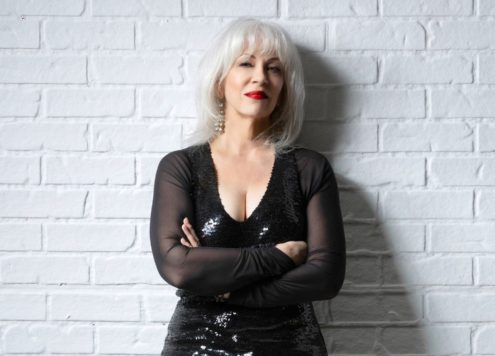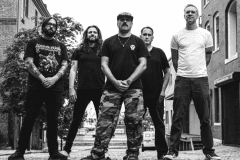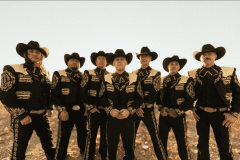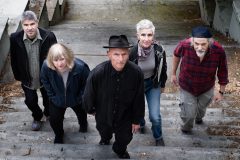Hues of the Blues: An interview with Janiva Magness
With over three decades in the music business, American blues and soul singer/songwriter Janiva Magness is a stellar and studied entertainer who has emerged as one of the premier rhythm and blues artists in the world today. With nine albums under her belt, the Blues Foundation awarded Magness with B.B. King Entertainer of the Year honors in 2009 (the only other woman to win the award was Koko Taylor), she has been named Blues Music Awards’ Contemporary Blues Female Artist of the Year four times, and has received countless similar nominations. There is no doubt that Magness carries a bright and blazing torch for rhythm and blues, or that her heartfelt work invigorates the genre with in intense and honest ways.
Truth be told, Magness’ story also shines light on the transformative and rehabilitative nature of blues music. Suffering unspeakable tragedy in her mid-teens, losing both parents to suicide. Shuffling in and out of foster homes, she became pregnant at 17, and chose adoption for her own baby daughter. Despite these seemingly insurmountable personal pitfalls, Magness transformed the inspiration she found in her father’s record collection, and later at an Otis Rush performance, into resolve. Whether it was desperation or divine intervention that put these hardships, and later opportunities, in her path, Magness ultimately emerged a powerhouse songstress whose personal passions play out on stage, as well as in outreach activities; she is a national spokesperson for Foster Care organizations.
Ghettoblaster had the pleasure of speaking with Magness as she prepared for a run of tour dates. This is what she shared about her career and life experiences…
Was seeing Otis Rush for the first time your primary introduction to blues music? If so, how has that shaped the performer you’ve become today?
It wasn’t my first introduction, but it was a pivotal memory for me. My introduction to blues happened much younger through my father’s record collection. He didn’t have a huge blues collection, but he had a decent collection of old country music and some blues. The clearest memory I have of that is with Hank Williams and Patsy Cline, and all of Hank and Patsy’s material was deeply steeped in blues as we know if you’ve studied those artists at all. And he had a Bull Moose Jackson record called, Big Ten Inch, which was his biggest hit. Ofcourse he had Nat Cole and that kind of stuff too.
The Otis Rush story was that I experienced him for the first time when I was 14. I didn’t know who I was going to see. I was so moved, I was so riveted, I was so taken, literally taken hostage by his performance that night. I didn’t understand what happened or what hit me, but I knew I needed to find more of that. I wanted to seek out that kind of experience over and over and over again. Later on that year I would see B.B. King.
Hindsight is painfully accurate, and how glorious for a young girl to have those experiences. When I say it connected me, I can’t fully express the significance of what that means.
Can you recognize that kind of spark or connection in people that are watching you perform?
I don’t know that I can recognize that experience. But what I sometimes see, which I’m wildly grateful for, is the light go on in somebody’s eye. When I first started out performing I couldn’t look at people, it was much too scary. That kind of connection in the middle of a performance can be very intimate and very frightening. In the beginning I couldn’t handle that. But now, I seek that connection with the audience. And there is nothing like seeing the light come on in people when I am singing and they are recognizing the depth of the joy or sorrow or rage that I’m expressing. There is nothing like that kind of connection. Are they experiencing what I experienced, which was a turning point for me? I don’t know, I can’t speak to that. But I can speak to my side of it.
In the title of Stronger For It, there seems to be an indicator there that music has been an opportunity for you to experience a catharsis or to use it as a platform for coping or change. Would you say that is accurate?
I would say that is 300 percent. That is spot on.
Do you find that you have epiphanies while you are writing or recording music about things that you aren’t able to get from other places or catalysts as you’re living your regular life?
Yes. There are moments of clarity; moments where it feels like a door opens that I didn’t even know was there, or the clouds go away and something is sometimes excruciatingly clear. I consider those moments a gift. I do my best to receive, and sometimes that is a challenge since we’re so distracted in this world. To bring one’s self to a place of enough calm to receive what’s being given can be a challenge. I work at that a fair amount. It makes for an interesting journey.
You have also had the opportunity to reinterpret other artist’s songs and output. Do you choose those songs or do they choose you? How do you make them yours?
Most of my career I’ve been an interpreter of other people’s songs. I look for material that resonates for me. I’ve heard people say that I can sing about anything, and that might be true. But, I don’t want to sing just about anything. I’m interested in trying to articulate the songs that resonate with me. I finally figured out what my job really is, and it is about connection. It is about human connection. The vehicle for that is the music or song. I’m not going to sing something that doesn’t resonate deeply with me, because I don’t think it serves the purpose of my job, which is human connection. At the end of the performance there needs to be one or two or maybe more people who feel better than they did when they came in. Maybe there are one or two more people who realize that they aren’t alone in whatever they are experiencing.
Maybe they are coming through a struggle, or maybe someone did them wrong. Any of those topics or more are the human condition that is articulated in rhythm and blues and soul music. These feelings are not going away, and that’s why the blues is not a fleeting genre. It is the music of the people; the music of the struggle or journey of going through something and coming out on the other side and celebrating that.
I know when I hear Freddy King sing, “What are you going to do when the welfare turns its back on you? That he isn’t bullshitting. I know what he feels like. I know that level of dejection. Hearing Freddy King say that, I thought, “Man, he knows how I feel. I’m not the only one.” In that moment, or the next day, or the next week, it is a little bit better for me. I don’t want to sound self-important, but that’s what the job is. And it is a privilege to do that. There’s all the hotels, and driving from hell to breakfast for days in a row, and all the rest of that too, but what I try to keep my eye on is the job of that.
When I choose a song, I’m looking for that. So do I choose them or do they choose me? I don’t know. It is working right now and I’m happy about that.
You’ve been working in the music industry since the ‘80s now and I was recently watching the induction of Quincy Jones into the Rock and Roll Hall of Fame. He seemed to indicate in his speech that he thought R&B might be an unsung or forgotten art form. Do you believe that to be true?
No I don’t. I don’t agree with that. I don’t want to take away what Quincy was saying because that is his experience. He has a different reality than I do, or than my band does. Perhaps he is surrounded by people that don’t appreciate it. Perhaps he needs to join the blues foundation and take a trip to Memphis. Maybe he needs a new crowd. It ain’t dead or forgotten in my world. I don’t think blues is forgotten, I think people are distracted by so much other stuff that sometimes it is difficult to choose to hear it. But it’s there.
One of the other things it seems that impassions you in your life is being a spokesperson, ambassador and advocate for foster care organizations. Do you get feedback from people who say that you’ve provide them with hope or inspiration by sharing your experiences?
I cannot tell you how profound that has been for me. So, yes. It has been wild in the best way to get to a place in my life where I was willing to talk about some of my early experiences because maybe it might help someone else who was in the journey. And as it turns out, that seems to be true. In turn, it has helped to make my experience make a whole lot more sense. Somehow, by being willing to share my experience, with kids, with social workers, with judiciaries who are on the front line, somehow that seems to help them understand. I’ve been graced with many experiences of watching that light go on in someone else and to watch the ice melt in a kid who has been damaged, or who is extremely well defended emotionally, is beautiful. It is wonderful to speak to a social worker and to tell them what they are doing is working, and what they are doing is important.
Dialogue is a change agent…
Exactly.









Social Media